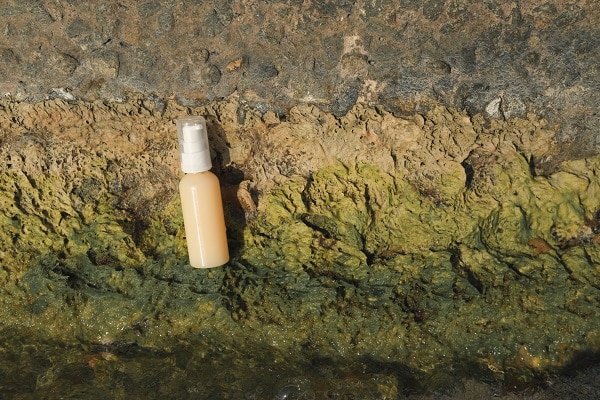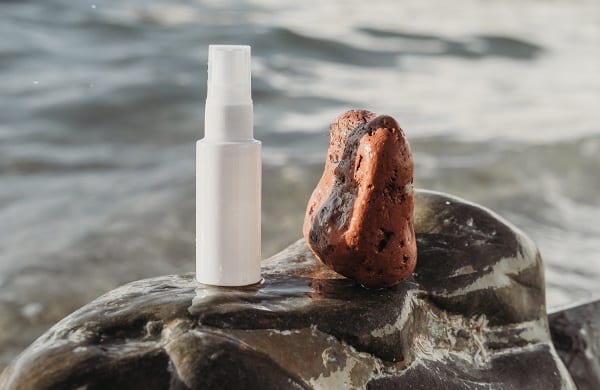Sunscreen is a crucial tool in the defense against harmful ultraviolet (UV) rays, a known cause of skin cancer. It works by absorbing, reflecting, or scattering sunlight to protect your skin from sunburn and premature aging. However, in recent years concerns about sunscreens have come to light for those looking to protect their skin, from their ingredients to their environmental impact. This article aims to discuss these concerns and provide guidance on how to navigate the complex world of sun protection.
Contents
Understanding Sunscreens And Their Ingredients

Sunscreen products contain a combination of ingredients designed to protect the skin from UV radiation. These include UV filters, preservatives, and substances that enhance UV protection or product stability. UV filters can be broadly classified into two categories: chemical filters that absorb UV rays and physical filters that reflect them. Some common chemical filters include oxybenzone, avobenzone, and octinoxate, while physical filters typically include zinc oxide and titanium dioxide.
However, some of these ingredients have sparked controversy. For instance, oxybenzone has been linked to hormone disruption in animal studies, and both oxybenzone and octinoxate have been associated with coral reef damage. While the evidence is inconclusive, and the risk to human health is still being investigated, these concerns have led many to reconsider their sunscreen choices.
Unveiling The Concerns About Sunscreens

The main concerns about sunscreens center around potential health risks and environmental impacts. Certain sunscreen ingredients have been found to penetrate the skin and enter the body, raising questions about their long-term effects. Additionally, some sunscreens have been found to harm marine ecosystems, particularly coral reefs, prompting bans in places like Hawaii and Key West.
Furthermore, the efficacy of sunscreens in preventing skin cancers and sunburns is another point of contention. While sunscreens are proven to reduce the risk of sunburn and protect against UV damage, some argue that they give a false sense of security, leading to more prolonged sun exposure and a potential increase in skin cancer risk.
The Environmental Impact Of Sunscreen

Sunscreens, particularly those containing oxybenzone and octinoxate, have been identified as a threat to marine ecosystems. These chemicals can cause coral bleaching, a condition that weakens coral reefs and can lead to their death. In addition to harming coral reefs, these ingredients can also accumulate in marine animals, potentially disrupting their hormonal systems.
Unfortunately, it’s not just beachgoers contributing to this problem. Sunscreen chemicals can enter water systems through our baths and showers, eventually reaching the ocean. This realization has spurred the development and promotion of “reef-friendly” sunscreens, although the effectiveness and regulation of these products are still under scrutiny.
Skin Health Concerns

While sunscreens are designed to protect the skin, they may also cause skin problems for some people. Certain sunscreen ingredients have been associated with skin irritation and allergies. Moreover, some studies suggest that certain chemical UV filters may interfere with hormone function, although the evidence is not conclusive.
There’s also concern that nanoparticle-sized zinc oxide and titanium dioxide, commonly used in mineral sunscreens, could penetrate the skin and enter the body. However, current research indicates that these nanoparticles remain on the skin’s surface and do not pose a health risk.
Efficacy In Skin Cancer Prevention

Sunscreen use is widely advocated as a measure to reduce the risk of skin cancers, including melanoma, the most dangerous type. Numerous studies have shown a reduction in skin cancer cases with regular sunscreen use. However, some critics argue that these studies often don’t account for variables such as skin type, sun exposure habits, and the use of other sun protection measures.
Moreover, there’s concern that sunscreens may encourage prolonged sun exposure by preventing sunburn, a natural warning sign to seek shade. This is particularly concerning for sunscreens with high SPF values, which protect against UVB rays that cause sunburn but may not provide adequate UVA protection, leading to deeper skin damage.
The Concern Over Vitamin D Deficiency

Sunlight is the primary source of vitamin D, a crucial nutrient for bone health and immune function. And there’s concern that excessive sunscreen use might interfere with vitamin D synthesis, potentially leading to deficiency. While sunscreen does reduce vitamin D production to some extent, it does not typically cause deficiency if used properly, as most people get enough sun exposure for vitamin D synthesis even with sunscreen use.
However, in certain populations and regions with limited sun exposure, this could be a concern. It’s crucial to balance the need for sun protection with healthy sun exposure, and supplements may be necessary for those at risk of vitamin D deficiency.
Sunscreen And Children

Children’s skin is more sensitive than adults, raising specific concerns about sunscreen use. Certain ingredients, particularly chemical UV filters, may be more likely to cause skin reactions in children. Moreover, as children have a higher surface area to volume ratio, they may absorb more sunscreen chemicals relative to their body size, potentially increasing their exposure to any harmful effects.
Despite these concerns, sun protection is crucial for children, as severe sunburns in childhood significantly increase the risk of skin cancer later in life. Experts recommend using mineral sunscreens on children and using other sun protection measures like hats and shade.
The Regulatory Perspective On Sunscreens

Sunscreens are regulated as over-the-counter drugs by the Food and Drug Administration (FDA) in the United States. The FDA oversees sunscreen labeling and has established testing procedures to ensure products meet their SPF claims. However, there’s an ongoing debate over the regulation of sunscreen ingredients, particularly with regard to their potential environmental and health effects.
In 2019, the FDA proposed a rule to update sunscreen regulations, classifying only two ingredients, zinc oxide, and titanium dioxide, as safe and effective, while requesting more data on 12 others. This move reflects increasing scrutiny of sunscreen ingredients and their potential impacts.
Alternatives To Traditional Sunscreen

In light of concerns about traditional sunscreens, alternatives have gained popularity. Mineral sunscreens, which use zinc oxide or titanium dioxide to physically block UV rays, are often recommended for their lower risk of skin irritation and their perceived environmental safety. However, they can be less cosmetically appealing due to their thicker texture and tendency to leave a white cast on the skin.
Other sun protection measures are also crucial. These include wearing sun-protective clothing, seeking shade, especially during peak sun hours, and wearing sunglasses to protect the eyes. In short, it’s important to remember that sunscreen is just one part of a comprehensive sun protection strategy.
How To Choose A Safe And Effective Sunscreen

Choosing a sunscreen involves considering various factors, including its SPF value, broad-spectrum protection, water resistance, and ingredients. Look for products labeled as “broad-spectrum”, meaning they protect against both UVA and UVB rays. Choose a product with an SPF of at least 30, and remember that high SPF values don’t offer significantly more protection.
When it comes to ingredients, consider your skin type, personal health concerns, and environmental considerations. If you have sensitive skin or are applying sunscreen on children, mineral sunscreens may be a better choice. And for those concerned about environmental impacts, look for products without oxybenzone and octinoxate.
Stay Informed On The Concerns About Sunscreens!
Sunscreens play an essential role in protecting our skin from harmful UV rays. However, it’s important to be aware of the concerns surrounding certain sunscreen ingredients and their potential impacts on our health and the environment. Making informed decisions about sunscreen use and taking other sun protection measures can ensure you’re doing your best to keep yourself and your loved ones safe from the sun.